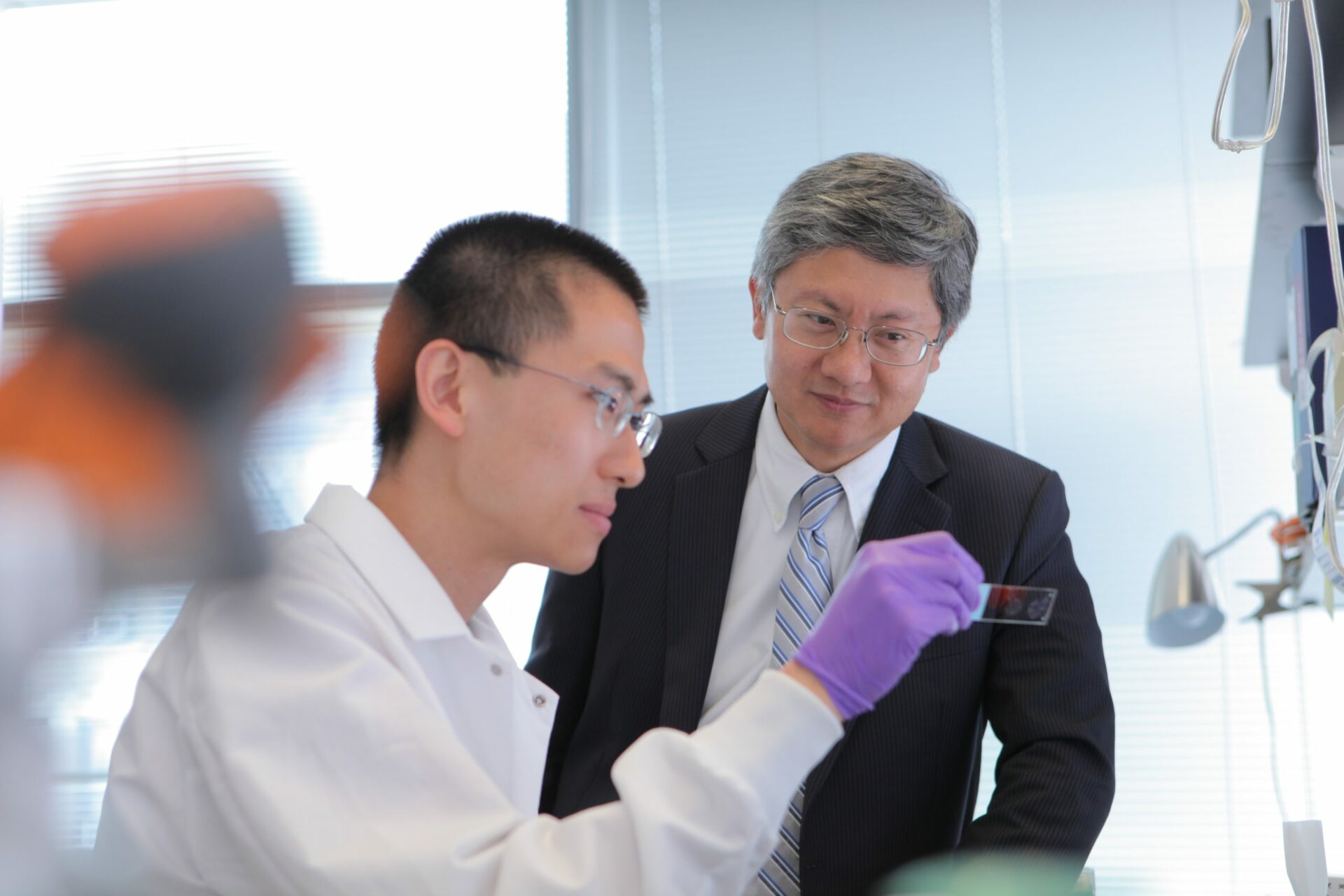Their name may sound like something out of a sci-fi novel, but organoids are very real—and very good for cancer research. Organoids are 3D models made from living tissue. When made from cancer cells, organoids offer an ideal model for studying how tumors respond to cancer therapies. They can even be grown from a particular patient’s tumor cells, allowing doctors to understand the tumor better before deciding which treatments are most likely to work for that patient.
 Michael Shen, Ph.D., of the Herbert Irving Comprehensive Cancer Center, is looking into how scientists can use organoids to predict which patients with bladder cancer can be treated with chemotherapy alone, and which patients are better off with a cystectomy (surgical removal of the bladder).
Michael Shen, Ph.D., of the Herbert Irving Comprehensive Cancer Center, is looking into how scientists can use organoids to predict which patients with bladder cancer can be treated with chemotherapy alone, and which patients are better off with a cystectomy (surgical removal of the bladder).
According to the National Cancer Institute, more than 83,000 people will be diagnosed with bladder cancer this year. While survival rates continue to improve (the 5-year rate is currently 77%), many of those survivors have to live the remainder of their lives without a bladder. The standard treatment for a patient with bladder cancer is chemotherapy, followed by a cystectomy. While this approach minimizes the chance the cancer will return, a bladder removal means patients typically must manage their urine with an external tube and pouch that can be prone to infection or leaking.
“You can imagine that many patients don’t want their bladders removed because that is a considerable change to quality of life,” said Shen. ““What we want to do is give patients a rational basis for whether or not to have their bladder removed.”
Shen and his team are using organoids derived from patients with advanced bladder cancer to help determine why certain patients’ tumors are more resistant to chemotherapy, while others see a long-term response with chemotherapy alone.
“We want to understand whether certain genetic mutations may predict the long-term durable response,” said Shen. “In a limited number of samples, all of those with an initial complete clinical response to chemotherapy have mutations in DNA damage response pathway genes, which is quite remarkable. So that idea certainly seems to be borne out in our analysis thus far.”
While there are still hurdles to clear, it’s a promising start. As researchers refine the processes for creating and studying tumor organoids, Shen believes organoids could help to advance both cancer research and personalized cancer treatment
By furthering their work on this subject, Shen and his team will not only save more patients’ lives, but improve the quality of life for those who survive. In addition to improving the outlook for bladder cancer patients and their families, advancing the use of organoids in cancer research could open the door for countless new ways to take on all types of cancers.




